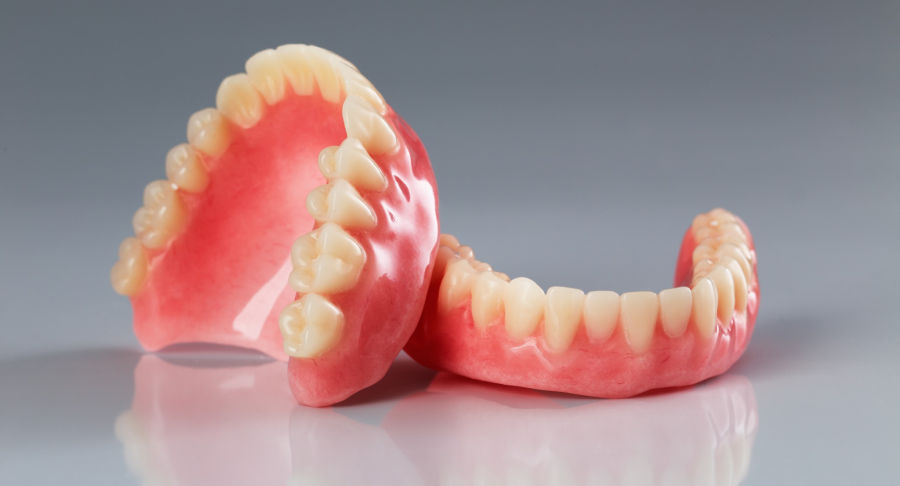

Dentures are removable prosthetic devices used to replace missing teeth and restore oral function and appearance. These dental appliances help restore the function and appearance of a patient’s smile, improving their ability to chew, speak, and maintain facial structure.
There are two types of dentures.
- Full dentures
- Partial dentures
Full and partial dentures are especially beneficial for those who have lost multiple teeth due to decay, injury, or other dental health issues.
Full dentures: These are used when all of a person’s teeth need to be replaced. They are designed to sit on the gums and can be removable or fixed with dental implants. Full dentures provide complete restoration of the dental arch, allowing for improved function and aesthetics.
Partial dentures: These are recommended when only a few teeth are missing. Unlike full dentures, partial dentures are anchored to the remaining natural teeth, filling in the gaps and preventing further shifting of the teeth.
Each type of denture offers unique advantages. Full dentures are typically more affordable than other replacement options, such as dental implants, and can effectively restore the entire dental structure. Partial dentures, on the other hand, offer the benefit of preserving remaining teeth, which can help maintain natural oral functions and stability. Both types can be customized for a comfortable fit and a natural look.
Maintenance of full and partial dentures is crucial for long-term success. They need to be cleaned regularly to prevent plaque buildup and gum infections. Over time, dentures may need to be adjusted or replaced due to wear or changes in the shape of the gums. Overall, choosing between full and partial dentures depends on the patient’s individual needs and the condition of their remaining teeth. Both options provide a reliable solution for restoring dental health and confidence.










